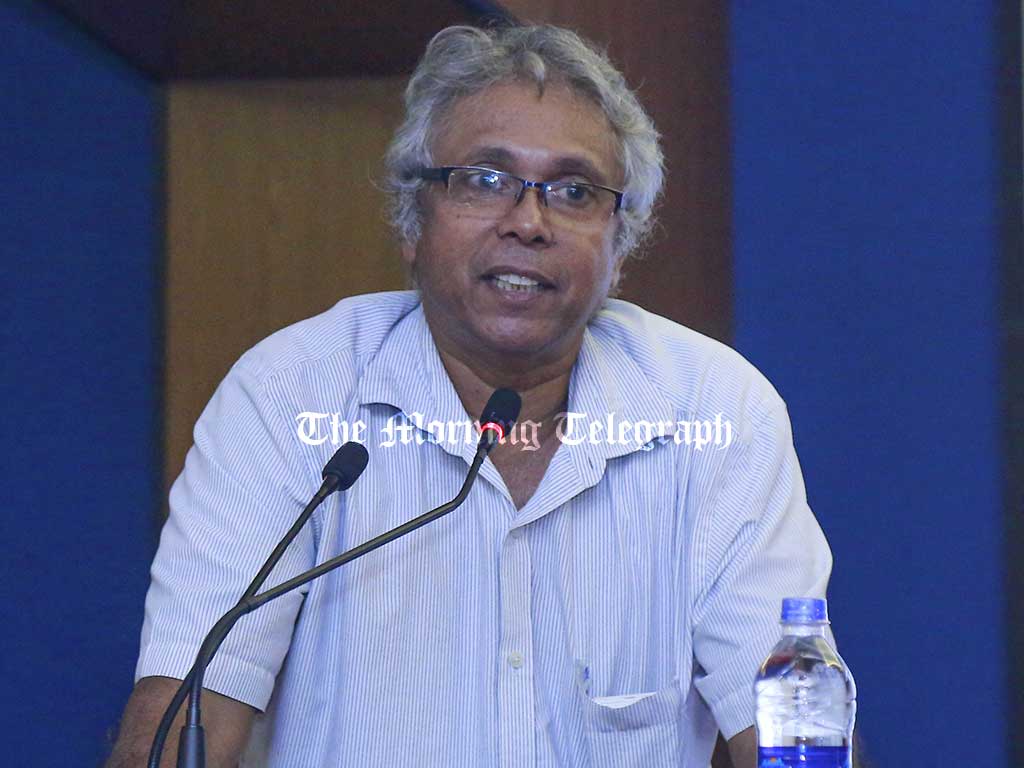
Colombo, April 01 — Historian and political analyst Dr. Nirmal Ranjith Dewasiri has stated that the National People’s Power (NPP) movement, commonly referred to as the “Compass,” is experiencing a significant decline in its grassroots strength, while the Janatha Vimukthi Peramuna (JVP) has risen to prominence by asserting control over the alliance.
In a video released on his personal online channel, Dr. Dewasiri said the recent behavior and decisions of the NPP’s leadership are contributing to a weakening of its foundational support among the people.
“What we are witnessing now is the subduing of the broader National People’s Force by the JVP. The government is now clearly being politically led by the JVP,” he observed.
He cited the resignation of Dileep Vitarana as a symbolic yet significant development. Vitarana, who served as Chairman of the National Transport Commission, recently stepped down—a move that Dr. Dewasiri views as a subtle but meaningful warning sign.
“Dileep Vitarana played a crucial role in shaping the government’s vision and the ideological framework of the National People’s Force. His departure from a role he handled with passion and commitment is not a trivial matter,” he said.
Dr. Dewasiri added that Vitarana had earned widespread respect within the NPP community, including from the JVP rank and file, making his resignation all the more noteworthy.
He further commented on the current power dynamics within the alliance, noting that the Executive Council of the National People’s Power appears to be inactive. He criticized the centralization of political control in the hands of a few top leaders, suggesting that this has undermined the participatory spirit that once characterized the movement.
“The way this government is functioning today has significantly weakened its popular base,” Dr. Dewasiri warned. “This is a dangerous development for the long-term viability of the NPP.”
He concluded that unless these issues are addressed, the alliance could face internal fractures and a loss of public trust, especially among those who were initially drawn to its promise of collective leadership and ideological renewal.




